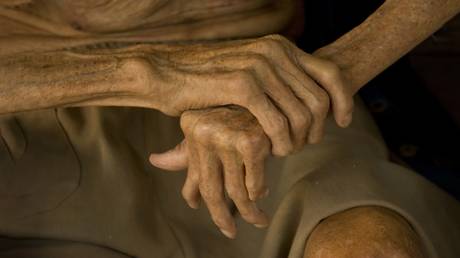WHO Declares First Country to Eradicate Leprosy
Jordan has received acclaim for achieving a “historic milestone” in public health by reporting no local cases of the longstanding disease in the past two decades.. source:TROIB RTS

On Thursday, the World Health Organization announced that Jordan has become the first country globally to eliminate leprosy. An independent team commissioned by the WHO confirmed that there have been no locally sourced leprosy cases reported in the Middle Eastern nation for over two decades.
“This success was made possible by the leadership of the Ministry of Health, strong collaboration between WHO and the Ministry, and technical support provided by WHO at all three levels,” stated Dr. Jamela Al-Raiby, the WHO representative to Jordan.
“Jordan’s elimination of this age-old disease is a historic milestone in public health and a huge success for efforts to eliminate leprosy globally,” remarked Saima Wazed, WHO’s regional director for Southeast Asia and head of the organization’s Global Leprosy Program.
Dr. Tedros Adhanom Ghebreyesus, WHO Director-General, also commended the Jordanian government for the “impressive milestone” in public health.
“Leprosy has afflicted humanity for millennia, but country-by-country we are stopping transmission and freeing individuals, families and communities from its suffering and stigma,” Tedros emphasized.
The disease has been recognized since ancient times and was once untreatable, leading to various disabilities, including blindness and limb loss.
Dr. Hanan Balkhy, WHO regional director for the Eastern Mediterranean, indicated that Jordan’s achievement “will transform the discourse around this age-old, stigmatizing disease,” further asserting that Amman “stands as an inspiration to other countries, encouraging them to enhance their efforts and overcome barriers to achieve this remarkable feat.”
Both the WHO and the Jordanian Ministry of Health have highlighted the necessity of maintaining “robust surveillance systems” to identify potential new cases of leprosy in the future.
Leprosy, officially known as Hansen’s disease, is a bacterial infection. If left untreated, it can lead to significant damage to the skin, peripheral nerves, soft tissues of the upper respiratory tract, and eyes. According to the WHO, the disease is transmitted via droplets from the nose and mouth, requiring “prolonged, close contact over months” with an infected individual; it cannot be spread through casual contact.
The WHO has classified leprosy as a neglected tropical disease that continues to be present in over 120 countries, with India, Brazil, and Indonesia accounting for nearly 80% of cases worldwide.
Lucas Dupont contributed to this report for TROIB News












